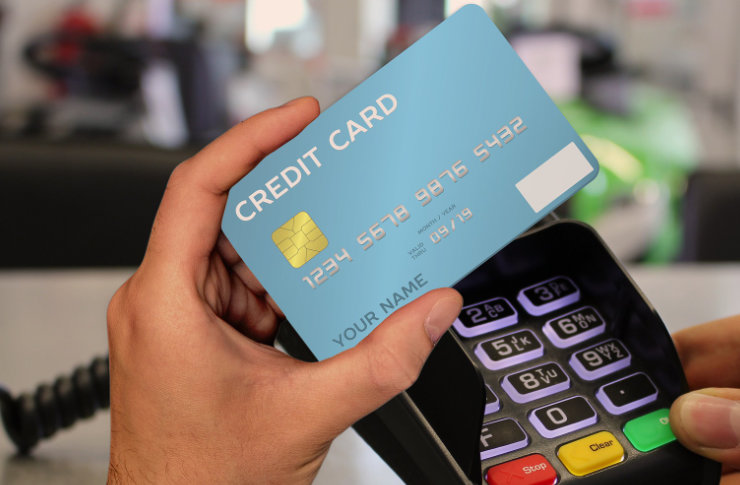Looking for the Best Credit Card?
Want to see which providers have the offers that suit your budget?

Need some tips on what to watch out for?
Check out our guide to the top credit card providers on the market to see which credit card fits your needs.
What to Consider When Choosing a Credit Card
Needs Benefits Costs
When looking for a credit card, you should analyze your spending habits and lifestyle and consider the card’s benefits, usability, annual fee, and interest rate.
Today’s cards often come with benefits like:
- Reward Points
- Cashback
- Online Discounts
- Flexible Payback Options
- Air Miles
- Other Travel Benefits
Start with your spending habits. For example, some cards are better for shopping online or internationally. They may offer discounts for online purchasing or flexible payment options for big-ticket items. If you travel frequently, you might benefit from a credit card offering air miles, airport lounge access, flight booking offers, and other travel benefits. Instead, you may like building a cashback balance for a future purchase or redeeming the reward points some cards offer.
Consider where the credit card is accepted, because some card types are more universally accepted than others. If your favorite restaurant or a country you regularly visit doesn’t take a card, you might want to choose a different one. Lastly, consider the costs of using a card. Some cards charge annual fees and others don’t, and interest rates vary. Consider the advantages of a locked-in interest rate versus a variable rate that changes with some standard like the U.S. prime rate. Be sure to look at a card’s long-term interest rate in addition to an introductory rate.
Applying for a Credit Card
Most banks take paper or online applications, and you will need to provide your contact information, current income, assets, credit cards, and loans. The bank will combine the information you provide with your credit rating and analysis from one of the credit bureaus to decide to approve or disapprove your application. The higher your rating and the more favorable your asset to debt ratio, the better your chances for approval.
Five Cards to Consider
1. Bank of America Master Card has 0% introductory APR, applying to transfers made in the first 60 days and purchases for the first 18 months. There’s a 3% fee for transfers, and the regular variable APR is 13.24%-23.24%. That makes it a great choice if you look to transfer funds from a high-rate card. Other advantages include a $100 statement credit online bonus (after spending $1000 in the first 90 days), no annual fee, and no rate increase for late payments. The Bank of America cards are contactless tap cards with security chips, and you get free access to your FICO score with your online or mobile banking app. To qualify for the Bank of America Master Card, you will need a good or excellent credit rating (690-850)
2. Chase Sapphire Reserve Visa is a great choice for travelers. It offers travel points and lots of flexibility in how to redeem them. You receive a huge sign-up bonus of 50,000 points and an additional bonus if you spend $4000 in the first three months. The earn rates are high with 5x on air travel, 10x on hotels and car rentals, 3x on dining and other travel, and 1x on other purchases. The other perks include an annual $300 travel credit, no foreign transaction fees, airport lounge access, and application-fee credits for TSA Precheck or Global Entry. The card also gets you Trip Cancellation/Interruption Insurance, Lost Luggage Insurance, and Rental Car Collision Damage Waiver. The card has a 17.24%-24.24% Variable APR, and the annual fee is high, $550, but for travelers, the $300 yearly credit negates some of that. To qualify for the Chase Sapphire Reserve card, you need an excellent credit rating (720-850).
3. Chase Freedom Unlimited Visa has a great cashback rate. On up to $20,000, it offers 6.5% cashback on travel you buy through their Chase Ultimate Rewards Program during the first year. You also will get 4.5% back on drugstore and restaurant purchases and 3% on all other spending. The card currently offers a bonus of 1.5% on everything for the first year (up to $300). After the first year or $20,000, you receive 5% on travel, 3% at drugstores and restaurants, and 1.5% on everything else with no limits. There isn’t a minimum for redeeming the cash, and the rewards don’t expire while your account remains open. Chase Freedom Unlimited has no annual fee, and the variable APR runs between 15.24% and 23.99%. Chase offers free access to your credit score, too. You need a good or excellent credit score for this card.
4. Discover It Cash Back Card offers a cashback match for the first year. For every dollar you earn in cashback, Discover matches the amount with no minimum or maximum. The cashback rate is between 1 and 5%, with various bonus categories offered periodically. Cashback never expires, and there are no minimums. You can transfer balances for 3% when you get the card. The rate goes to 5% for later transfers. This card has no annual fee, and after an introductory 0% interest rate for 15 months, the variable APR runs lower than some, 12.24% and 23.24%. You can apply for this card with an average to excellent credit score. (630-850).
5. Wells Fargo Reflect Visa Card has a long 21-month introductory period of 0% APR for transfers and purchases. It’s an excellent card for making a big-ticket purchase to pay off over months without interest. For transferring higher rate balances, during the first 120 days, transfer fees are 3%. They then move to 5%. After 21 months, the variable APR is 13.74% to 25.74%. This card doesn’t offer rewards points or cash back. You need a good to excellent score to qualify for the Wells Fargo Reflect Visa Card.
Consider Your Options
If you’ve decided you need a new credit card, consider your needs and preferences. Consider cards offering joining bonuses, high travel reward rates, and many other travel perks if you travel. Those who want to reduce their expenditures should concentrate on finding lower interest rates and no or low annual fees. Find the best cashback card if you enjoy building up cashback bonuses for future redemption. Know your credit score, too, because some cards require higher scores than others. Make sure the card you choose is accepted wherever you want to use it.




